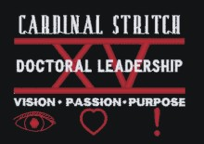Where do these themes come from? Often they are from studying what we consider great leaders. We identify who these people are, then look at what they did in order to make them successful. Leadership is then defined by things such as being a gift from those you work with (Owen, 2009), how we build relationships with others (Perez, 2009), and how we draw and channel energy from others (Marshall, 2009). Building community, working with others, and developing relationships (Taulbert, 2009; Robinson, 2009) are also important traits of leaders. This all makes sense and really is difficult to argue. However, the definition of what leadership is brings about more complexity to leadership.
Leadership for our program has been defined as the process of influencing others toward the achievement of a goal. Using this definition, almost anyone can be defined as a leader. At one time or another in our lives, it is likely that you would be in a position of influencing others toward the achievement of a goal. My son happened to convince the whole family tonight to go see the movie Transformers Rise of the Fallen. He sure influenced all of us toward his goal of going to see the movie! :)
It would be interesting to think of leadership in terms of what it isn't. How about we start at the characteristics that the people we don't consider leaders posses. What is it that keeps them from being a leader? Why wouldn't we consider them a leader? I think that would give us a very new theory on leadership. One that may (or may not) be more insightful. As we continue to search for leadership it may be easier to tell us what leadership isn't rather than trying to define what it is.
Was Hitler a leader? If he isn't what you would consider a leader, what is it that he possessed leaders shouldn't have? Or are we sufficed to say that Hitler was a leader...just not one we think is worthy to follow.
We should continue to contemplate leadership, what is it, what isn't it, and how can we use our leadership in service to others!



No comments:
Post a Comment